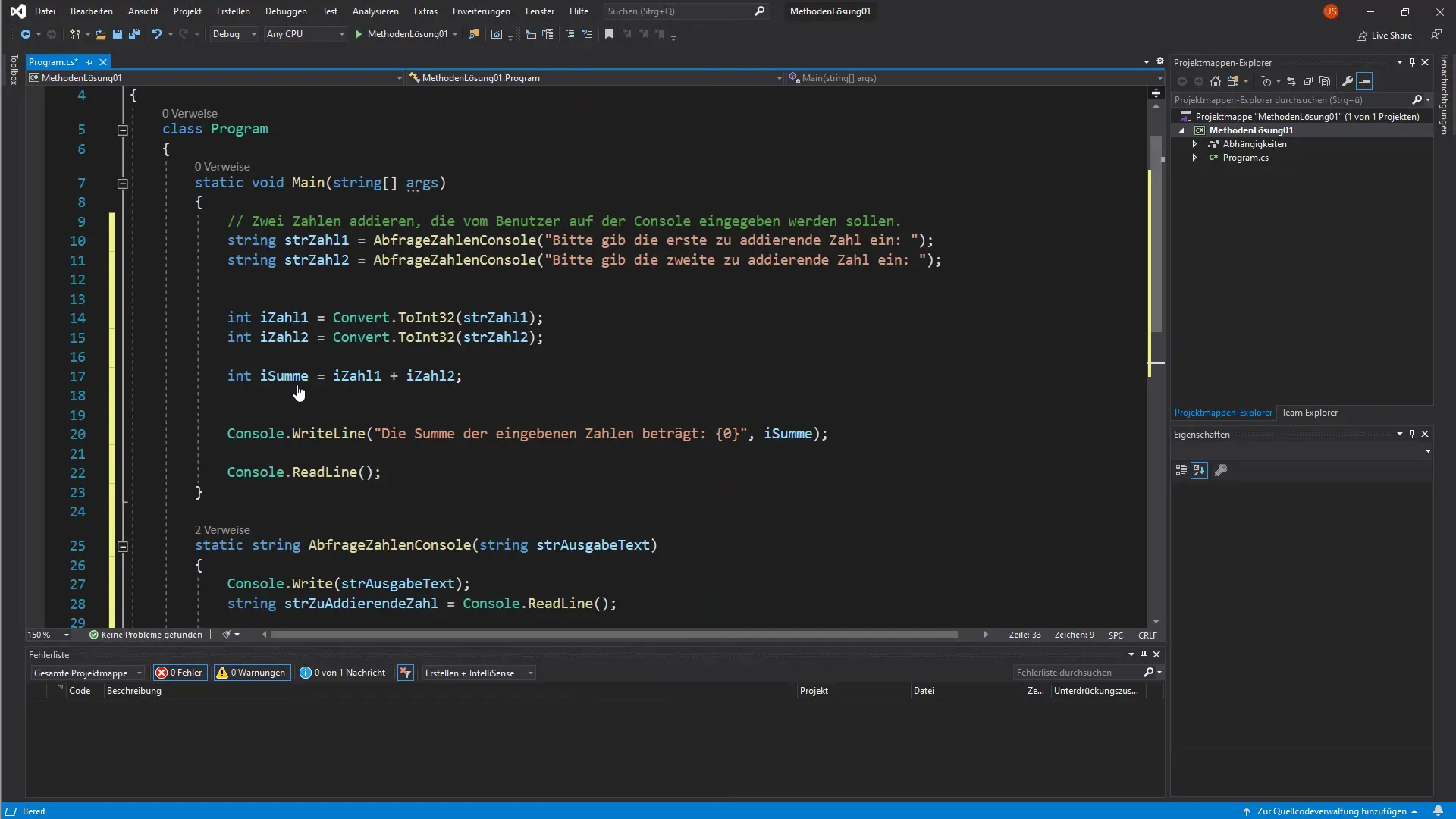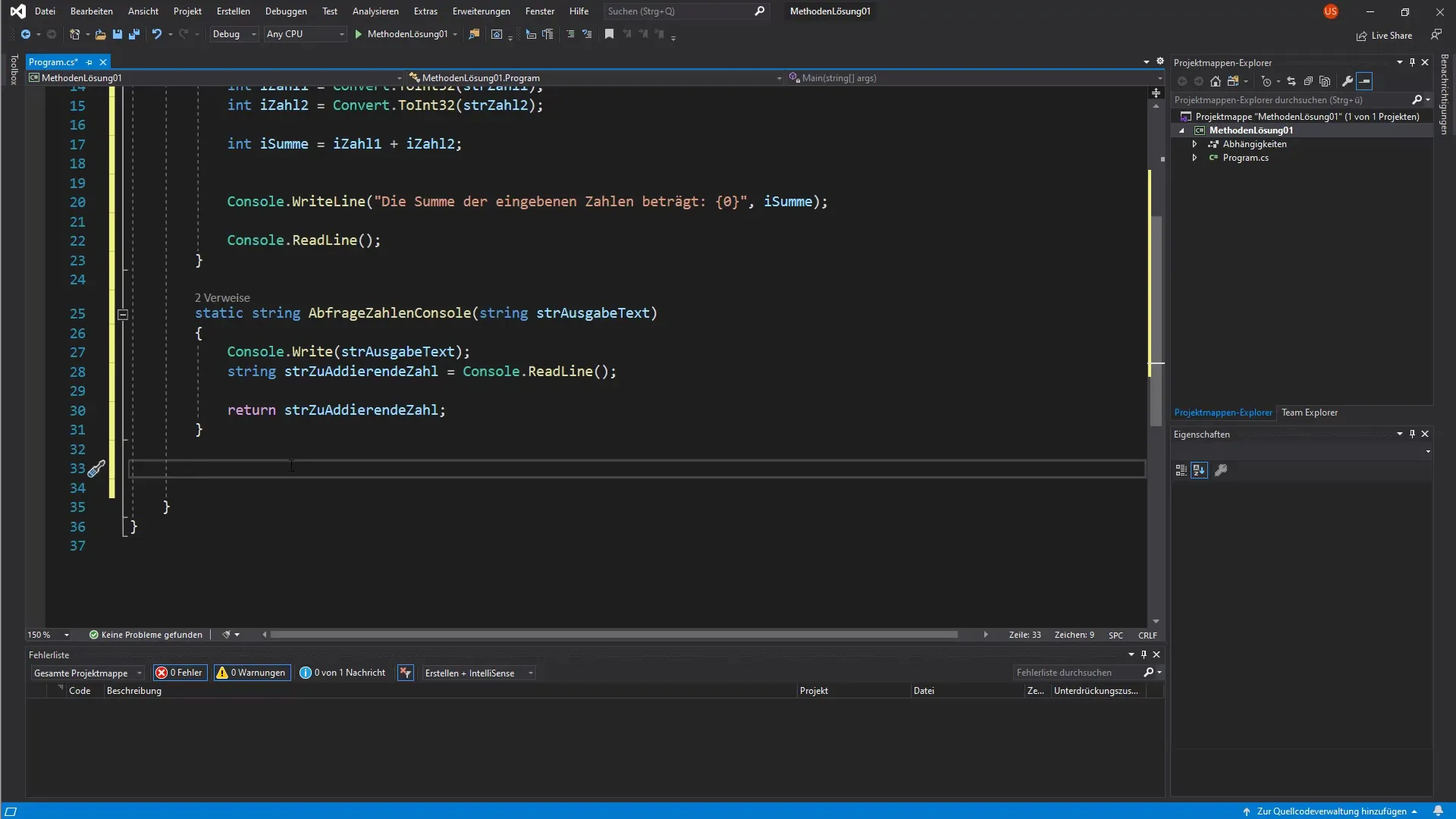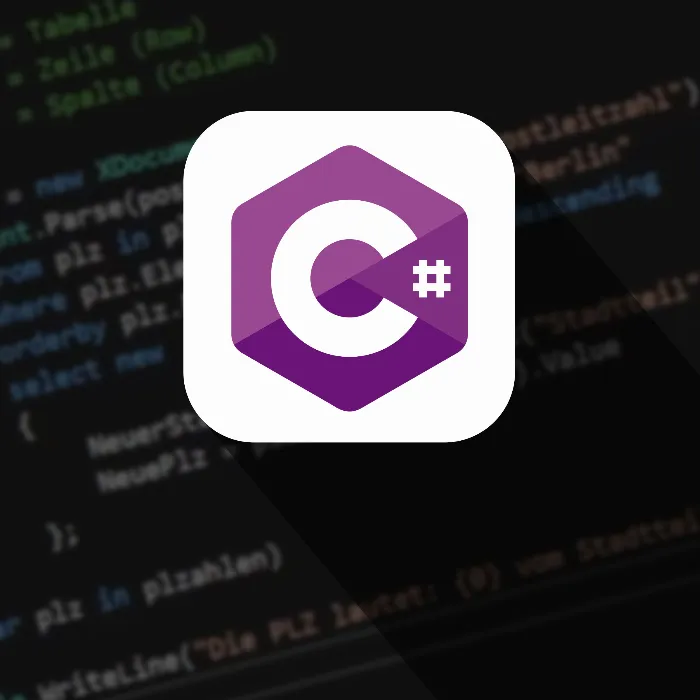You received a task in the last lesson that you have successfully implemented. Now it's time to deepen what you have learned and develop the solution for the task step by step. Let's create a method that converts a string into a number - an essential function in programming that you will often encounter.
Key Insights
- The importance of access modifiers and the return value
- The process of creating a method in C#
- Practical application and integration of the method into the main program
Step-by-Step Guide
Step 1: Access Modifiers and Method Definition
Start by defining your method. For this, you first need an access modifier. In our case, we will use "static". This means that the method can be called without instantiating a class. Next, you will define the return value, which will be an integer here.

Step 2: Naming the Method
The naming of the method is crucial for keeping the code understandable. Choose a descriptive name, for example, "ConvertStringToNumber". This precisely describes what the method will do: convert a string that represents a number into an integer.
Step 3: Parameter Passing
Now define the parameter for the method. In this case, you need a string that contains the number. You name this parameter "string number". This is simple and intuitive, enhancing the readability of the code.
Step 4: Converting the String
Within the method, you can now perform the actual conversion of the string into a number. Use the built-in function Convert.ToInt32() to convert the string into an integer. Store the result in a variable named "convertedNumber".

Step 5: Setting the Return Value
With the return statement, you return the converted integer. This is crucial, as otherwise the method would have no return value that you could use later in the program.
Step 6: Adjusting the Main Method
Now that the method is finished, return to the main method. Here you need to make some adjustments. First, remove the unnecessary lines that you no longer need without the method.
Step 7: Applying the Method
Replace the previous number inputs with a call to your newly created method. Pass the required string values entered by the user. This is done using the syntax ConvertStringToNumber(stringNumber1) for the first number and ConvertStringToNumber(stringNumber2) for the second.
Step 8: Adding the Numbers
Finally, you can add the two integer values and assign the result to a new variable, for example, "sum". Smaller, reusable methods help to make the code clearer and more maintainable.
Step 9: Verification and Testing
Check the code for errors and run it to ensure everything works correctly. You should be able to enter two numbers as strings and get the sum displayed correctly.
Summary – C# Methods: Approach to Developing an Effective Method
In this guide, you learned how to create a method for converting a string into an integer. This method will make it easier for you to work with user inputs and handle numbers in your code. The steps outlined above provide you with a solid foundation to further deepen your programming skills and create more complex methods in the upcoming lessons.
Frequently Asked Questions
How do you create a method in C#?A method is defined by an access modifier, a return value, and a method name.
What is an access modifier?An access modifier determines the visibility of a method or class, such as "public" or "static".
How do you convert a string into a number?This can be easily done with the method Convert.ToInt32(string).
What does the return statement do?It returns the value of a method so that it can be used by the calling code.


